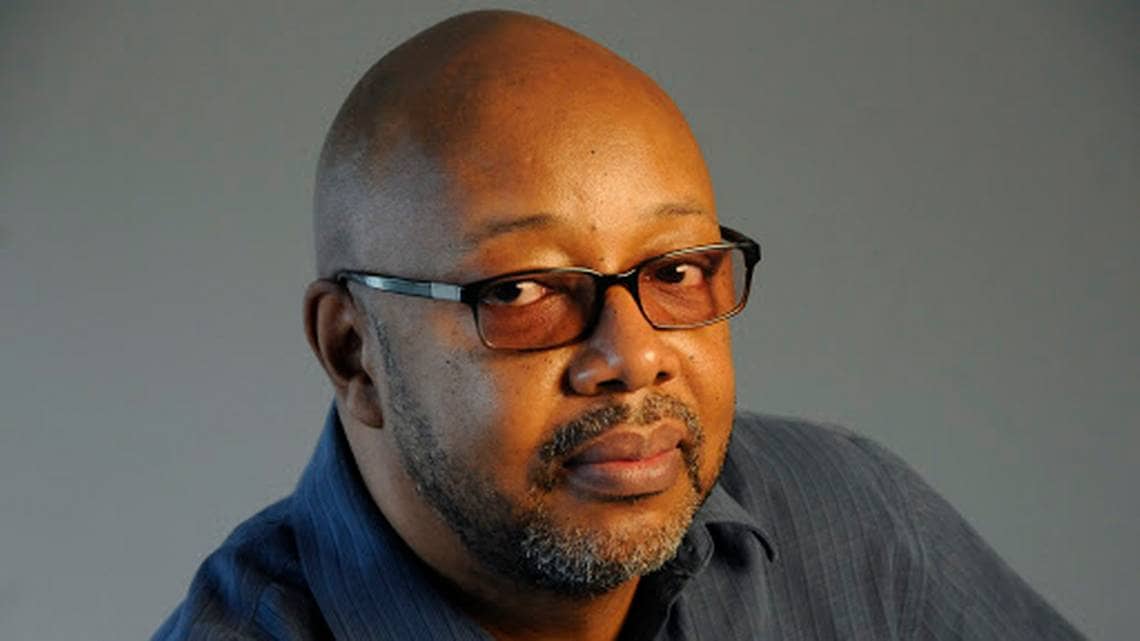This article was written by Leonard Pitts Jr. and originally published in the Miami Herald on December 3, 1998, and updated on January 30, 2019.

This is a column about hating Black history. It’s occasioned by a question I’ve heard more often than I’d like: What do you want from me?
Happens every time I write about the harsh days of slavery or Jim Crow. Some white reader will pick up the phone or dash off an e-mail asking the same thing: Why are you telling me this? What do you want from me?
The last person to ask was a 17-year-old girl. I’ve often been asked that question by older people, the implication being that I sought to bludgeon them with guilt so they might… I don’t know, support affirmative action or something. They are terribly, tellingly defensive about the guilt they don’t feel. I’ve learned to shine such people on.
That’s not so easy with a teenager. It’s her youth that gets to me, that requires an answer.
She’s not alone in being discomfited by Black history. Sometimes Blacks are, too. I once asked an elderly Black lady about a lynching she saw when she was young. She wondered why I would want to know about such a thing, kept insisting she had put that terrible night out of her mind. Her eyes were furtive, her voice trembling, and I knew she had done no such thing.
What’s telling is that she felt the need to try, the fact that she did not want to deal with the pain.
It is, perhaps, also difficult to deal with if you are white. Indeed, it’s not hard to see how a recitation of Black history might leave you feeling indicted and accused. And resentful because of it.
I think that’s what the girl was getting at when she asked her question. You could sense the walls being raised, the bridges drawn, the defenses set in place. And God, she’s only 17.
Too young to be that cynical and defensive. Too young to be like the dozens of others I’ve met who struggle with this thing, the ones who deny, who obfuscate, who raise emotional barriers. The ones who sometimes just cry in shame.
Each response seems to spring from the same gaping irresolution, the same untreated wound. Trouble is, as a nation, we’ve never even acknowledged that wound exists. Black people have spent generations trying to come to grips with their passages and have done, at best, an imperfect job. Yet that process has scarcely even been contemplated for whites who, after all, went through the same passage, albeit from the other side.
We have yet to grapple, or even truly pose, the questions arising from that fact. What do you do, if you’re a person of conscience, faced with a history that damns much of what your forebears did, believed and were? How do you find a comfort place with that, a space to simply be?
Which makes the girl’s question—What do you want from me?—seem vital. Because you sense that what’s being touched on here is not government programs or public policy—she has no power over those things. Rather it’s a simpler, more profound question of our ability to coexist, to be Americans, together.
I spent some time pondering what she asked me. Here’s my answer:
Don’t hate Black history, if only because it’s your history, too. It exists not to accuse you or to shame you. It simply exists. And you, every bit as much as I, have to make peace with it.
Understand that this is sacred ground and it hurts to walk here. But at the same time, I need to walk here, need the strength, the sense of purpose, the knowledge of self, that walking here imparts. And I’m obliged to witness here on behalf of those who can no longer witness for themselves, no longer say the things they saw and felt.
So please, don’t tell me how to walk this ground. Don’t tell me when you think I’ve walked it long enough. And don’t think every silence needs a voice to fill it. Sometimes, silence is an opportune place to ponder and to pray.
What do I want from you?
I want you to be my sister and to walk here with me. I know it’s a hard walk. I know it causes you pain.
But this much I also know: If ever we learn to tread this ground together, there’s no place we can’t go.

